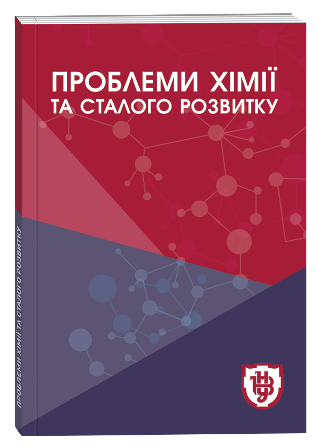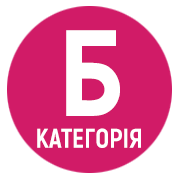FORMATION OF SCIENTIFIC COMPETENCY OF STUDENTS WITH THE HELP OF PISA FORMAT TASKS IN CHEMISTRY LESSONS IN BASIC SCHOOL
DOI:
https://doi.org/10.32782/pcsd-2023-2-9Keywords:
science competency, competency tasks, basic school, chemistry, PISAAbstract
The research was conducted in order to reveal the impact of PISA format tasks on the formation of science competency in basic school students on chemistry lessons, as well as the methods and means of its use. The state of the problem in the national education system is analyzed, the definition of the term "science competency" in foreign and Ukrainian pedagogical science is considered. In order to achieve the research objectives were used methods of scientific and pedagogical research: pedagogical modeling; analysis of competency-oriented tasks, results of students' activities, statistical data, scientific and methodological literature. The state of the problem at the international level is displayed, in particular the results of Ukrainian students’ participation in the international PISA 2018 study of education quality, namely the indicators of formation level in science literacy. The author emphasizes that one of the reasons for Ukraine's low results is insufficient attention to the problems of implementing competency-based education. The term "science literacy" and its aspects are considered. The competency character of PISA research is emphasized, which is manifested in tasks that require for solution not the reproduction of acquired knowledge and skills, but the ability to effectively apply them in non-standard situations. The expediency of formation science competency during the study of chemistry by aid of PISA format tasks, in particular complex tasks with text blocks, tables and graphs, closed and open-form tasks aimed at working with text, tabular and graphic data, is argued. Examples of such tasks, which are used in chemistry lessons in basic school, are considered, in particular, in control and correction lessons. The result of the research is the determination of conditions for successful organization and effective teaching of chemistry using competency tasks of the PISA format; development of such tasks in chemistry for 9th graders studying in the scientific and pedagogical project "Intellect of Ukraine". The author accented the positive results of using PISA format tasks in chemistry lessons for the purpose of forming science competency.
References
Головко М.В., Науменко С.О. РІSА-2018 як індикатор стану загальної середньої освіти в Україні. Український педагогічний журнал. 2017. № 2. С. 8–20. URL: https://core.ac.uk/download/pdf/84274617.pdf.
Дробін А.А., Гайда В.Я., Бевз А.В. Формування природничо-наукової та самоосвітньої компетентності на прикладі предметної компетентності з фізики та астрономії. Science and Education a New Dimension. Pedagogy and Psychology, VIII (94), Iss. 236, 2020. С. 22–25. DOI: https://doi.org/10.31174/SEND-PP2020-236VIII94-05.
Козленко О. Уроки PISA-2018: природничо-наукова грамотність і як її розвивати. Біологія і хімія в рідній школі. 2020. № 1. С. 2–11. URL: https://lib.iitta.gov.ua/718967/1/pisa.pdf.
Макєєв С.Ю., Грановська Т.Я., Сидоренко О.В. Формування природничо-наукової компетентності засобами ІКТ на уроках хімії у старшій школі. Наукові записки Вінницького державного педагогічного університету імені Михайла Коцюбинського. Серія: Теорія та методика навчання природничих наук. 2021. № 1. С. 63–77. DOI: https://doi.org/10.31652/2786-5754-2021-1-60-73.
Макєєв С.Ю. Міжнародні системи моніторингу якості компетентнісно орієнтованої загальної середньої освіти. Засоби навчальної та науково-дослідної роботи. 2022. № 58. С. 150–168. DOI: https://doi.org/10.34142/2312-1548.2022.58.14.
Макєєв С.Ю. Формування поняття про природничо-наукову компетентність на основі міжнародного дослідження PISA. Вісник Луганського національного університету імені Тараса Шевченка. Педагогічні науки. 2023. № 1(355). С. 9–19. DOI: https://doi.org/10.12958/2227-2844-2023-1(355)-9-19.
Непорожня Л.В. Методичні особливості формування природничо-наукової компетентності старшокласників на уроках фізики. Збірник наукових праць Кам'янець-Подільського національного університету імені Івана Огієнка. Серія педагогічна. 2016. № 22. С. 96–99. URL: http://ped-series.kpnu.edu.ua/article/view/94601/90244.
Непорожня Л.В. Формування природничо-наукової компетентності старшокласників у процесі навчання фізики: метод. посіб. Київ: ТОВ «КОНВІ ПРІНТ», 2018. 204 с. URL: https://undip.org.ua/wp-content/uploads/2021/07/form_pr_2018.pdf.
Нова українська школа. Концептуальні засади реформування середньої школи. Київ: МОН України, 2016. 40 с. URL: https://mon.gov.ua/storage/app/media/zagalna%20serednya/nova-ukrainska-shkola-compressed.pdf.
Про освіту: Закон України від 05.09.2017 р. № 2145-VIII. URL: http://zakon.rada.gov.ua/laws/show/2145-19.
Baartman L.K.J., de Bruijn E. Integrating knowledge, skills and attitudes: Conceptualising learning processes towards vocational competence. Educational Research Review. 2011. Vol. 6, Iss. 2, 125–134. DOI: https://doi.org/10.1016/j.edurev.2011.03.001.
Dolin J. Competence in Science. In: Gunstone, R. (eds) Encyclopedia of Science Education. Springer, Dordrecht. 2015. 185–188. DOI: https://doi.org/10.1007/978-94-007-2150-0_430.
OECD. PISA 2015 Assessment and Analytical Framework: Science, Reading, Mathematic, Financial Literacy and Collaborative Problem Solving, 2017. PISA, OECD Publishing. 260 p. DOI: https://doi.org/10.1787/9789264281820-en.
OECD. PISA 2018 Assessment and Analytical Framework, 2019. PISA, OECD Publishing. 308 p. DOI: https://doi.org/10.1787/b25efab8-en.
Siarova H., Sternadel D., Szőnyi, E. Research for CULT Committee – Science and Scientific Literacy as an Educational Challenge, European Parliament, Policy Department for Structural and Cohesion Policies. 2019. 61 p. URL: https://www.europarl.europa.eu/thinktank/en/document/IPOL_STU(2019)629188.







